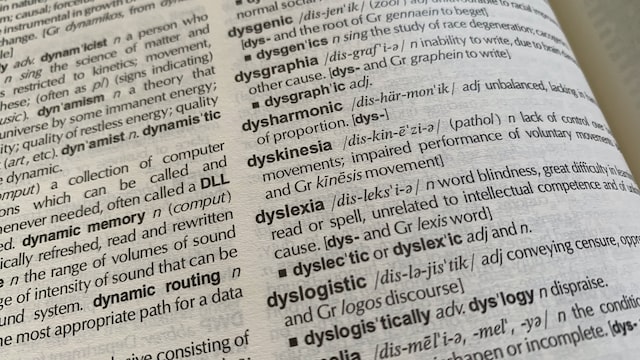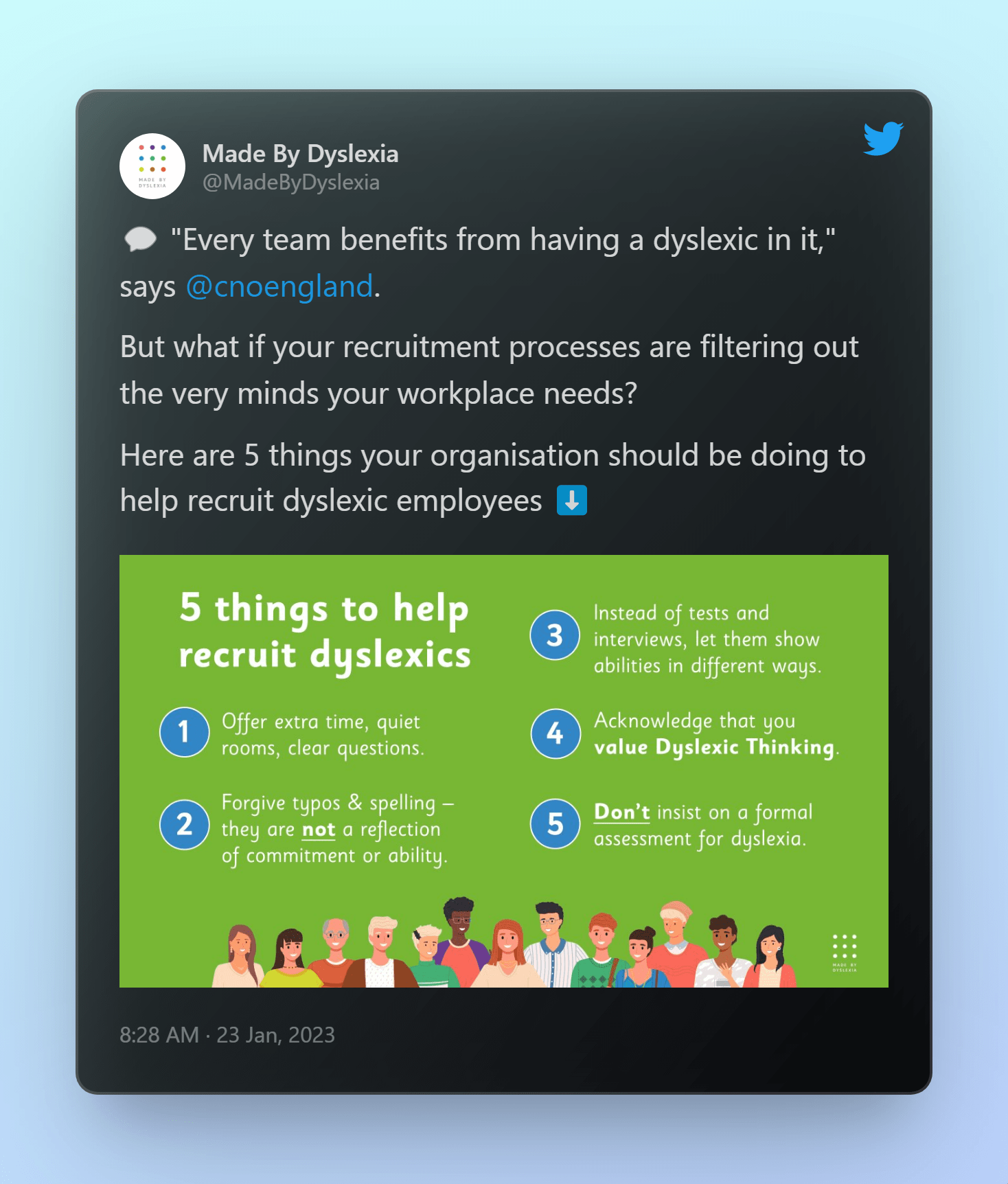Disclosing Dyslexia On a CV: Yes or No?
Dyslexia is a common learning disorder characterised by difficulty in processing language and symbols that affects an individual's ability to read, write, and spell. It affects about 10% of the population and can be a source of frustration and challenges for those with it. However, it is also a condition that can be managed and overcome with the proper support.
If you have dyslexia and are preparing a CV, you may wonder if and how you should mention it. The short answer is: that it is up to you. However, you are not required to disclose your dyslexia on your CV. In most cases, employers are not allowed to ask about an applicant's medical history or disabilities. You are not required to disclose this information unless you need specific adaptations or support to perform the job.

"…Dyslexic job applicants often display unique skill-sets"
Unfortunately, there can still be a stigma surrounding dyslexia and other learning disorders. While attitudes are changing, there is still the possibility that disclosing your dyslexia could be viewed negatively by some employers. If you are concerned about this, it may be best to omit this information from your CV.
If you do mention dyslexia:
One reason to consider disclosing your dyslexia on your CV is if you feel it has significantly impacted your academic or professional achievements. For example, if you struggled with reading and writing in school, but could overcome these challenges and still achieve good grades, this can be a point of pride that you may want to highlight on your CV.
Dyslexic candidates offer unique strengths that should be highlighted in a CV. These include:
- Problem-solving: People with dyslexia often develop strong problem-solving skills due to the challenges they have faced in their education and personal lives. These skills can be valuable in the workplace, where finding creative solutions to problems is often key to success.
- Adaptability: Dyslexia can require individuals to adapt to different learning styles and methods to succeed. This adaptability can translate to the workplace, where the ability to pivot and think on one's feet can be crucial in fast-paced environments.
- Creativity: Some studies have suggested that people with dyslexia may have a higher propensity for creative thinking. This creativity can be essential in industries that value outside-the-box thinking, such as advertising, design, and marketing.
- Strong verbal communication skills: While dyslexia can affect an individual's ability to read and write, it does not necessarily affect their ability to speak and communicate. Many people with dyslexia are excellent communicators and can excel in roles that require strong verbal skills, such as customer service or sales.
- Attention to detail: People with dyslexia often work harder to catch errors and pay attention to detail. This can make them valuable employees in roles that require high levels of accuracy, such as quality control.

"…additional support is often available for dyslexic job applicants"
These transferable skills lend themselves to a diverse mix of positions, including:
- Artistic or creative roles: If you have a strong artistic or creative streak, you may excel in careers such as graphic design, illustration, or photography. These roles often involve more visual and hands-on problem-solving, which may be easier for individuals with dyslexia to navigate.
- Customer service: Many people with dyslexia excel in roles that involve strong verbal communication skills, such as customer service or sales. These roles may be a good fit if you are a confident and personable individual who enjoys interacting with others. Made by Dyslexia; a global charity led by successful dyslexics reported that 71% of people with dyslexia are above average at communicating.
- Practical roles: Some people with dyslexia may find it easier to learn and excel in practical, hands-on roles. Careers such as Mechanic, Electrician, or Plumber may be good options if you enjoy working with your hands and solving problems in a tangible way.
- Circus performer: No, we’re not joking. Picking up on our earlier point of people with dyslexia having unique skills, it was recently reported that a man from Huddersfield used these to his advantage to secure the role of Circus Performer. “When I had to use the balance board at school the idea was to find the centre of gravity and then hold it for as long as possible. I discovered early on I had a talent for it and was able to balance for far longer than anyone expected.” (source: Yorkshire Live).
- Technical roles: If you are interested in technology and enjoy problem-solving, you may find that a technical role is a good fit. Careers such as software development or IT support may be good options if you are comfortable with computers and have strong analytical skills.
- Entrepreneurship: If you are an independent and self-motivated individual, you may find that entrepreneurship is a good fit. Starting your own business allows you to create your own rules and work in a way that is comfortable for you.
So…should you mention dyslexia on your CV?
There’s no definitive right or wrong answer here. Whether or not you choose to mention dyslexia on your CV will depend on the specific job you are applying for and your circumstances. However, by focusing on your strengths and achievements and being honest about your needs, you can present yourself as a qualified and capable candidate.
Photo credit: by Rob Hobson on Unsplash
